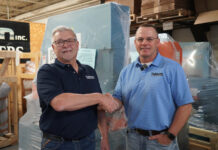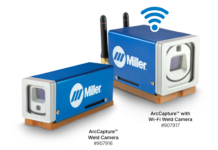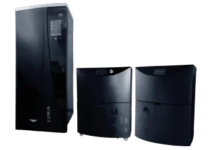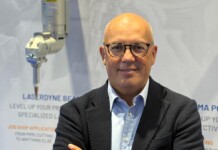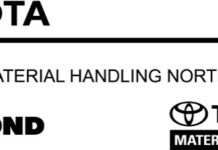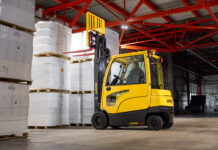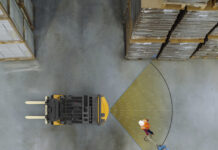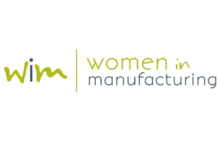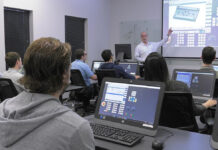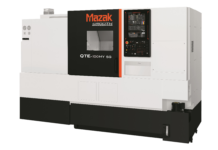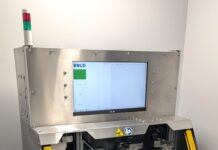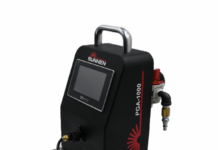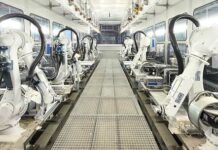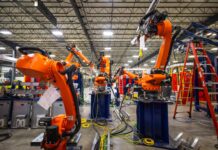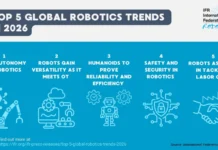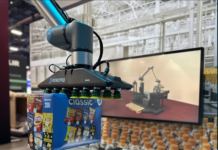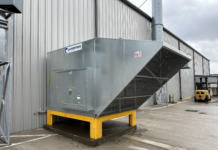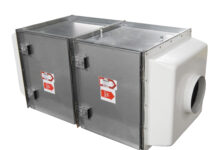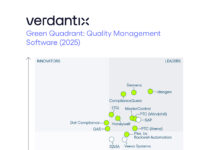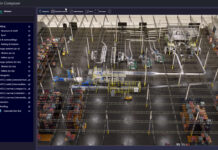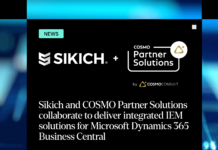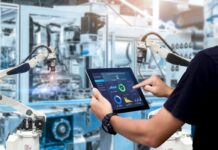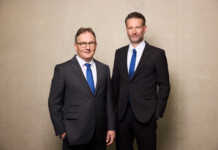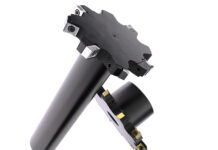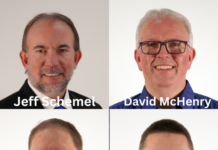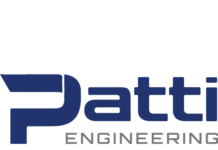Machina Labs today announced that the United States Air Force (USAF) has awarded Machina Labs $1.6M to advance and accelerate the development of its robotic technology for manufacturing of metal tooling for high-rate production of composites.
Higher vehicle production rates in comparison to current rates is anticipated as experts project that the airline industry will need to triple its fleet to about 60,000 airplanes over the next 20 years. With respect to military applications, there is a similar drive towards balancing mission agility, sustainment, and vehicle cost; giving rise to emerging air vehicle concepts like the Low-Cost Autonomous Collaborative Platforms (ACP) program where there is a higher tolerance over limited life and loss of vehicles during operations.
In addition, Advanced/Urban Air Mobility (AAM/UAM) vehicles have received considerable commercial traction in recent years. These highly automated, on-demand passenger and air cargo vehicles are anticipated to have production rates in the tens to hundreds of thousands per year. Lightweight, high-strength composite structures are a key enabler for achieving these goals. As such, the factory throughputs of advanced composite structures have to be increased and their production cost lowered.
Machina Labs’ AFWERX Tactical Funding Increase (TACFI) contract will be focused on metal tooling for a fast-cure, out-of-autoclave (OOA) composite processing route. Through its previous contract with the Air Force Research Laboratory, Machina Labs has validated that its tools have vacuum integrity, are dimensionally stable once thermally stabilized, and are thermally more responsive than conventional metal tools.
Composite tooling, depending on the materials selected and the tool size, could cost more than $1 million per tool and require 8-10 months of lead time. These costs and lead times for composite tooling do not support referenced increased manufacturing goals.
“Machina Labs has demonstrated that its large-envelope, two-robot, incremental sheet metal forming technology can be used for manufacturing of metal tooling for composites resulting in dramatically reduced tool costs and time-to-market of composite parts,” according to Craig Neslen, Manufacturing Lead for the ACP Program at AFRL. “At the same time, given that no part-specific hardware is necessary for manufacturing of the sheet metal tools, it is possible to not only fabricate the tools expeditiously, but to quickly accommodate design changes when necessary.”
Machina Labs uses robots the way a blacksmith uses a hammer to creatively manufacture different designs and material, introducing unseen flexibility and agility to the manufacturing industry. The company’s manufacturing platform combines the latest advances in robotics and AI so great ideas can quickly and affordably turn to reality and businesses can benefit from rapid iteration to bring more innovative products to market, faster.
“We are pleased to advance our work with USAF in order to advance composite tooling for a wide variety of applications,” according to Babak Raeisinia, Co-Founder and Head of Applications & Partnerships at Machina Labs. “Keeping inventory of tooling is expensive. I believe technology will free up capital and allow organizations such as USAF to transition to an on-demand tooling model.”
Machina Labs combines the latest advances in AI and robotics to deliver finished metal products in days – not months or years – and gives customers unprecedented time to market and competitive advantage. Robotic sheet forming is the first process enabled by Machina’s patented manufacturing platform. Using material- and geometry-agnostic technology, the platform outperforms traditional sheet forming methods that rely on custom molds or dies.
About Machina Labs
Founded in 2019 by aerospace and automotive industry veterans, Machina Labs is an advanced manufacturing company based in Los Angeles, California. Enabled by advancements in artificial intelligence and robotics, Machina Labs is developing Software-Defined Factories of the Future. The mission of the company is to develop modular manufacturing solutions that can be reconfigured to manufacture new products simply by changing the software.

